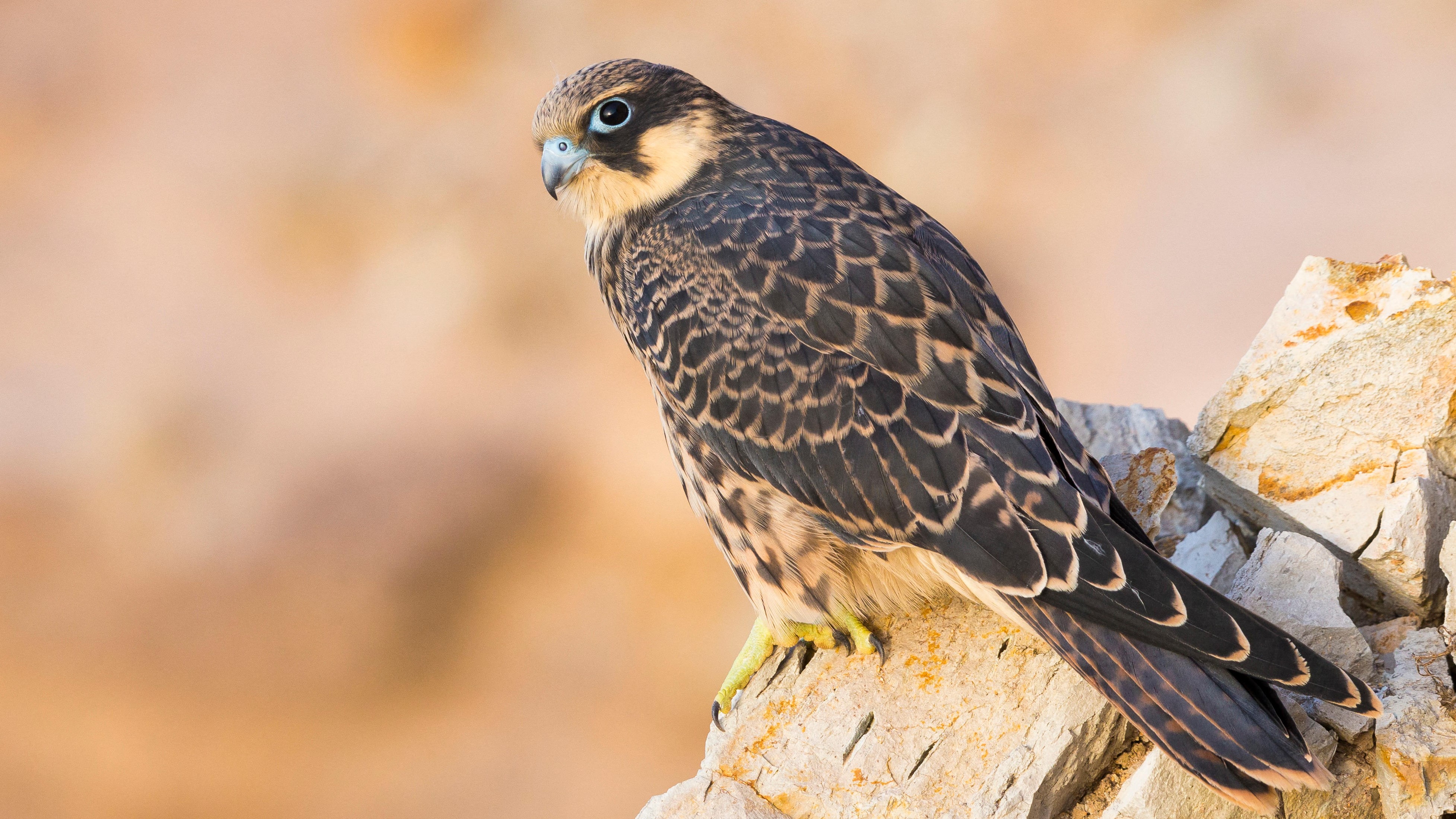
Name: Eleonora's falcon (Falco eleonorae)
Where it lives: Breeding in the Mediterranean and off the northwest coast of Africa, wintering in Madagascar
What it eats: Insects, bats and small birds
Why it's awesome: The Eleonora's falcon is a small raptor that takes its hunting abilities to the next level — by catching its prey alive and keeping them imprisoned. It captures small birds, strips their flight feathers preventing them from being able to fly, then stuffs them into rock fissures or deep holes, from which they cannot escape.

Strangely, only one population of Eleonora's falcon is known to partake in this unusual predatory behavior. The behavior was already known to local fishers, but ornithologists first described the hunting technique in 2015 after carrying out a census of the species on the Mogador archipelago, off the west coast of Morocco.
Scientists think that by keeping birds captive, the raptors can keep their food source fresh until it's needed. While the majority of the prey are small songbirds, they also eat swifts, hoopoes (Upupa epops) and some waders.
Related: The human-sized African bird that eats baby crocodiles and kills its siblings
The authors believe this behavior is unique to the Mogador population, having found no other reports of live imprisonment among other Eleonora's falcons or raptor species.
Their findings, however, were met with skepticism by some. Rob Simmons, a behavioral ecologist at the University of Cape Town in South Africa, told New Scientist the imprisoned birds may just be escapees hiding in rocks to avoid being killed.
All Eleonora's falcons consume birds during their nesting period, between July and October. They prey on migrating birds that are tired from their long journeys, catching them mid-flight. This feast helps the falcons and their young prepare for their own migration to Madagascar. The rest of the year they feed mainly on insects such as dragonflies and butterflies.







